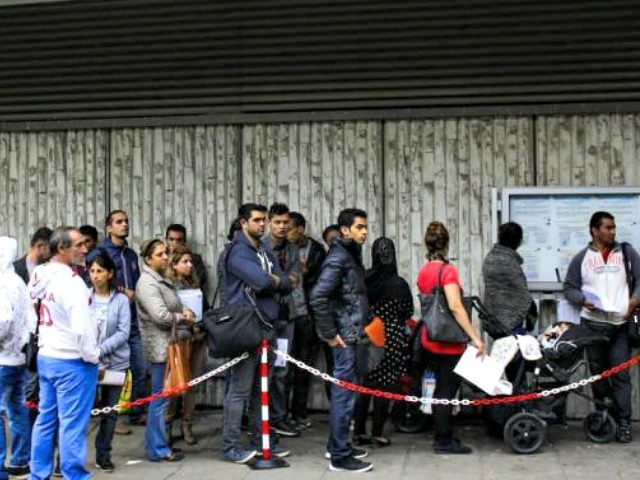In the Bavarian city of Ingolstadt, the owner of the Amadeus nightclub — identified in Deutsche Welle’s story only as “Martin T.,” as if that would somehow preserve his anonymity — decided to ban “refugees” from his establishment after a series of altercations between the refugees and customers.
Although he claims to have taken this step reluctantly, he was nevertheless denounced as a racist from some quarters, while others began “handing out fliers about clubbing etiquette, telling other refugees how to behave appropriately toward women.” The club owner declared himself willing to compromise by assigning “mentors” to teach newly-arrived refugees about German social expectations.
Not everyone in Bavaria is comfortable with the proposed solutions, of course. It is fairly clear from Deutsche Welle’s story that “refugee” and “asylum seeker” are, in this context, euphemisms for fairly distinct groups of people:
Martin T., the man who started the controversy, said he didn’t like to take the drastic step of banning refugees, but couldn’t see any other way. He claimed he had never seen major trouble at the “Amadeus” until December 2014, when new refugees arrived in the local home for asylum seekers. T. claimed that on several occasions, the men harassed female guests, stole other people’s coats and tried to get free drinks in his establishment.
In an interview with German daily Süddeutsche Zeitung, he made it very clear why he didn’t want the refugees at his club: “The blacks have a problem with women and the Arabs have a problem with aggression,” he said.
Refugee activist Hamado Dipama cannot believe that T. could get away with such a statement that is, in his opinion, openly racist. He doesn’t want the city to offer alternatives to the outright ban – he is calling on officials to at least issue a caution and has lodged a complaint against T. and the “Amadeus” with Ingolstadt’s regulatory agency.
“This open kind of racism is really something new,” Dipama said. “It’s incredible to hear something like this in the 21st century.”
Martin T. on the other hand emphasized that he was only trying to protect his guests after a number of incidents involving residents from the refugee home. In a Facebook statement, T. wrote that the “temporary measure” went completely against his usual “social and societal believes.”
Although German club owners theoretically have broad dispensation to refuse admittance to their establishments, Dipama cites German’s Law for Equal Treatment, which trumps both the owner’s rights and the city’s attempts to reach a compromise in his view.
Dipama denounced the idea of providing newly-arrived refugees with mentors or instructional pamphlets as patronizing.
“The refugees aren’t children who need to learn how to act before entering a club,” he insisted. “I would feel offended if someone stopped me to explain how I needed to behave. This is completely unacceptable to me.”
Others worried that “extreme right” elements would be attracted to Ingolstadt by the controversy. Some rather vicious exchanges between supporters and detractors of Martin T. have broken out online.

COMMENTS
Please let us know if you're having issues with commenting.